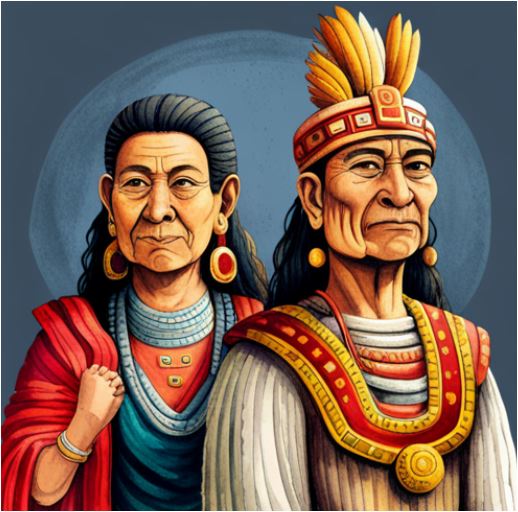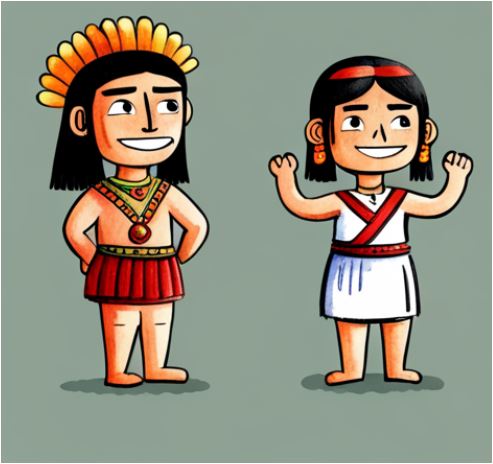Happiness According to the Aztecs
Happiness is a universal concept but how it is understood and pursued can vary greatly across different cultures and eras. For the Aztecs, a civilization that flourished in central Mexico prior to the Spanish conquest, the idea of happiness was vastly different from our modern understanding. Let’s explore the unique Aztec perspective on happiness and its implications for living a dignified and meaningful life.
Happiness
One of the main characteristics of the Aztec concept of happiness is that they did not equate it with achieving the best life possible. In contemporary society, happiness is often linked to success, material wealth, and personal fulfillment. However, the Aztecs maintained a clear distinction between feeling happy and living a fulfilled life. For them, these were separate entities, each with its own set of principles and objectives.
A World of Imperfections
The Aztecs believed that human beings are inherently flawed and prone to making mistakes. They viewed Earth as a place filled with both joy and suffering, where obstacles and failures are an inevitable part of life. Regardless of one’s intelligence, skill, or talent, bad things would happen, mistakes would be made, and setbacks would occur. This realistic view of the human condition framed their understanding of happiness as a fleeting and random experience rather than a permanent state.
Happiness was a “Passing and Random” Matter
Given this worldview, the Aztecs saw happiness as something transient and unpredictable. It wasn’t something one could permanently achieve or hold onto but rather a momentary state that could come and go without warning. This perspective contrasts sharply with today’s often relentless pursuit of constant happiness and personal satisfaction.
Beyond Happiness: Living a Dignified Life

Interestingly, the Aztecs placed a higher value on living a dignified life than on the pursuit of happiness. They used the term “neltiliztli” to describe a life of integrity, purpose, and moral fortitude. For them, this was the ultimate goal and far more attainable and worthy than fleeting moments of happiness.
The Pursuit of Neltiliztli
Living a dignified life involved adhering to societal norms, fulfilling one’s duties, and striving for personal and communal betterment. It was about resilience in the face of adversity, showing kindness and respect to others, and maintaining a sense of balance and harmony in one’s life. This holistic approach to living emphasized long-term well-being and fulfillment over the transient pleasures of happiness.
Modern Reflections
The Aztec perspective on happiness offers valuable lessons for modern Mexicans and anyone interested in a deeper understanding of contentment and fulfillment. In a world often obsessed with instant gratification and constant happiness, the Aztec view reminds us of the importance of resilience, community, and moral integrity. By focusing on living a dignified life, one can find a deeper, more enduring form of fulfillment.
In Conclusion
The Aztecs’ concept of happiness as a fleeting experience, separate from the pursuit of a dignified life, challenges our contemporary assumptions about what it means to be happy. Their emphasis on moral integrity and resilience provides a refreshing alternative to the relentless pursuit of personal satisfaction. By adopting some of these ancient principles, we can enrich our lives with a sense of purpose and dignity that transcends the transient nature of happiness.
If you found this exploration of Aztec philosophy intriguing, we invite you to share your thoughts and reflections. How do you perceive happiness in your own life? Join the conversation and connect with others seeking deeper meaning and fulfillment.
By understanding the Aztecs’ unique take on happiness and neltiliztli, we can gain new insights and perhaps find more balanced ways to live our own lives.

